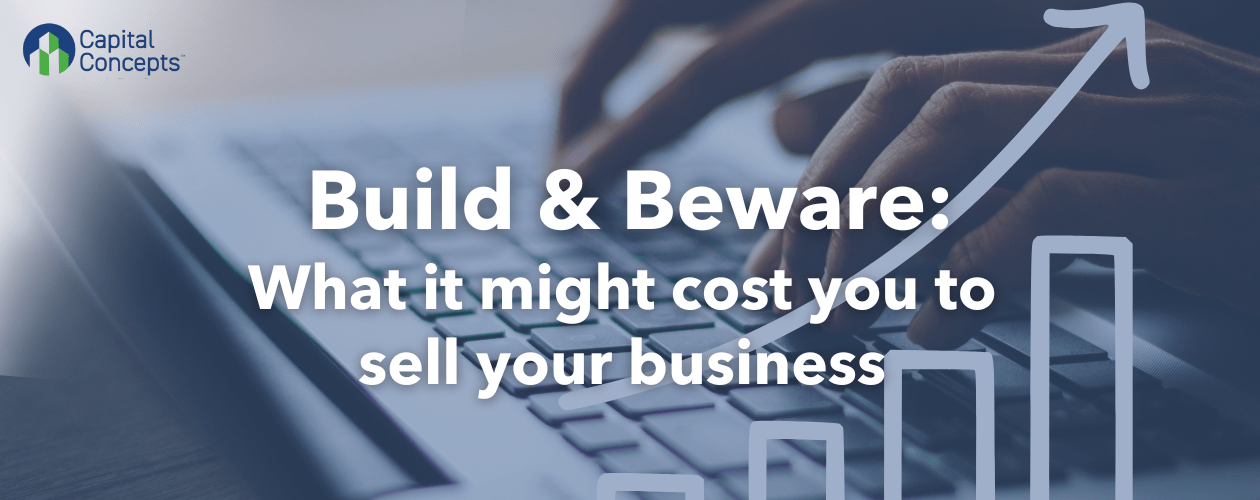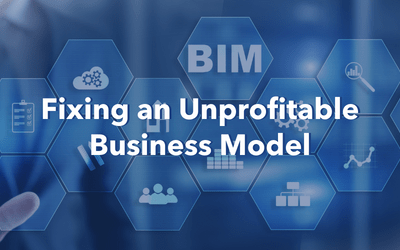You Just Sold Your Business for Millions – So Why Isn’t That in Your Bank Account?
The papers are signed. The deal is closed. After years of hard work, you’re ready to celebrate your big payday.
But as you finalize accounts and tie up loose ends, you realize the numbers don’t add up. The sale price was impressive, but after covering unexpected costs—unpaid wages, broker commissions, legal fees, and more—your final payout is nowhere near what you expected.
What went wrong? More importantly, how can you avoid this mistake before you sell?
It’s Not Just What You Make – It’s What You Keep
At Capital Concepts, we’ve worked with business owners who underestimated the true costs of selling. They assumed their exit would leave them financially set, only to find themselves with far less than anticipated.
The mistake? Not preparing their business for a profitable sale and failing to account for the hidden expenses of exiting.
As our president, Lorne Greenfield, CEPA, says:
???? “It’s not what you make, it’s what you keep.”
So, what expenses should you plan for? And how can you maximize what you keep after a sale?

The Hidden Costs of Selling a Business
Most business owners focus on their sale price—but the real number that matters is your net proceeds after expenses.
Here are some common costs that can significantly reduce your final payout:
-
- Final salaries and wages – Including severance and accrued benefits.
-
- Lease and rent obligations – You may be responsible for fulfilling existing agreements.
-
- Broker and investment banker fees – Typically 10%–15% of the sale price (or a structured Lehman formula for deals over $10M).
-
- Advisory fees – Legal, financial, and accounting services can add up quickly.
-
- Listing costs and marketing collateral – Professional materials and outreach to attract buyers.
-
- Working Capital and/or Earnout adjustments
-
- Closing costs and legal fees – Essential for finalizing the transaction.
These expenses vary based on the type of sale, so doing your research and consulting trusted professionals is crucial.
The Build & Beware Approach
The good news? You can protect your financial future by adopting two key strategies:
1. BUILD: Increase Your Business Value Before You Sell
Most owners fixate on what their business is worth today, but the real question is: how much more could it be worth?
By neglecting opportunities to increase profitability and reduce risks, many business owners leave money on the table—without even realizing it.
The truth is, your business can grow and scale long before you sell, dramatically increasing its market value. The time to optimize is now, not when you’re already preparing to exit.
Here’s how to make your business more valuable before you sell:
-
- Strengthen your financials to attract better offers.
-
- Improve operational efficiency to boost profitability.
-
- Reduce risks that could decrease your valuation.
Your business isn’t just one of your largest assets—it’s an investment. The better you prepare now, the more you’ll keep later.
2. BEWARE: Know the Costs Before You Sell
Understanding the true financial impact of selling your business helps you:
-
- Avoid surprise expenses that eat into your profits.
-
- Negotiate smarter by factoring costs into your sale strategy.
-
- Exit with confidence, knowing exactly what you’ll walk away with.
The biggest mistake owners make is assuming a sale equals a windfall—when in reality, it’s what you keep that matters. Work with competent professionals to project, in advance, what the net proceeds will be for any sale option presented to you.
Plan Ahead, Keep More
The difference between a disappointing exit and a truly profitable one comes down to preparation. Are you making the right moves now to maximize your payout later?
???? Want to ensure your sale leaves you financially secure? Let’s talk. A 15-minute conversation could help you identify blind spots and plan for a stronger exit. Schedule a call.
Related Articles
Set Your Business Up To Run Without You
Set Your Business Up to Run Without You
Fixing an Unprofitable Business Model
Uncover expert tips on reevaluating pricing, cutting costs, enhancing efficiency, diversifying revenue streams, and more.
Scalability: What It Is and How to Improve It
Scalability is the ability to grow – to flex and adapt production and operations to accommodate a rising demand for products or services. Growth can create unexpected challenges, however. and if a business cannot scale, it could fail because it’s too successful too quickly.
Need Fresh Eyes On Your Business?
We offer complementary consultations to help you identify the areas where you could most quickly and easily improve your business’s performance, value, and profitability. Request one today.





0 Comments